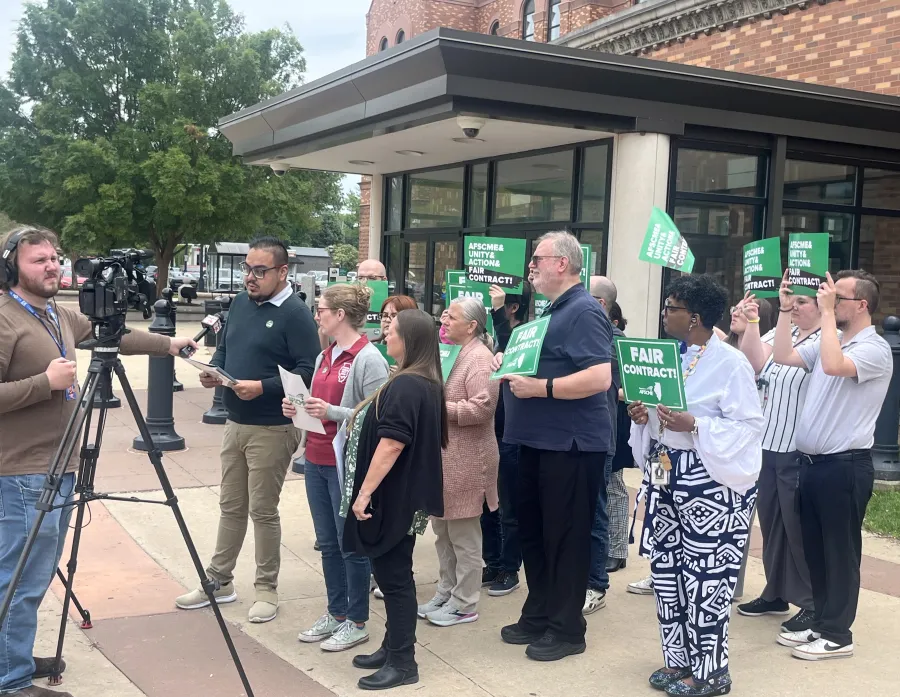Unity and strike readiness key to Local 900’s contract win

In their efforts to secure a fair contract, members of AFSCME Local 900 walked right up to the brink of their first-ever strike.
The Champaign County employees didn’t want to walk off the job, but after more than six months at the bargaining table, they were ready to do so. In a vote held in May, 90% of eligible employees voted, and 96% of votes cast were Yes to authorize a strike if necessary.
When management kept dragging its feet in negotiations, Local 900’s bargaining committee set a deadline. If they didn’t have an agreement by the morning of July 8, union members would walk off the job. Wages were at the center of their demands. Starting wages at the county have remained stagnant at $16 an hour—barely above the legal minimum.
One-third of the bargaining unit made less than $20 an hour. For workers who make the courthouse run, administer county services, repair and maintain highways, find and care for stray animals and support the operations of the county jail, those wages were a slap in the face. And Management was offering little more across the table.
In addition, the county was refusing to ensure that workers’ out-of-pocket health care costs wouldn’t skyrocket by as much as 150%. Management was even balking at paying for rabies vaccines for animal control employees who are exposed to the disease in the course of their work.
Management’s hard line unified the local.
“We were all feeling angry,” Local 900 President CeCe Phillips said. “We all stood together and said, ‘We aren’t going to take this.’ The way it united our local was amazing.”
Council 31 reached out to other AFSCME locals in central Illinois to urge support in the event of a strike and the response was swift and strong. Local 900 was flooded with messages from members of other locals who were ready to donate food and supplies and to come out in solidarity should a strike happen.
“I couldn’t believe the amount of support we got. It really touched me,” said Bobbie Johnson, a member of the bargaining committee. “It brought out the best in everyone.” The day before the strike was set to begin, the union bargaining committee went back to the table for one last attempt to secure a fair contract without striking.
And they got it done!
After an eight-hour bargaining session and just 12 hours before they were set to walk off the job, the bargaining committee reached a tentative agreement with the county.
After all the months of battling, real gains were made. The local won across-the-board pay raises, with bigger increases for the lowest-wage employees. They succeeded in keeping their health care affordable, reducing premiums and maintaining out-of-pocket maximums. Plus, they won the employer-paid rabies vaccines for animal control employees that had come to symbolize the solidarity that carried them all forward.
In the ensuing days, the agreement was overwhelmingly ratified by the membership.
"This just proves what can be accomplished when we are united and stand up for what we deserve,” Phillips said.
The Local 900 bargaining committee included Phillips, Johnson, Jarod Tinsley, Justin Matthew, Oscar Alvarado, Brianna Harrison, Riley Lannom, Rosemary Ferrara, Leslie Erdman, Emmett Elward, Melissa Jamison, Janae Wisehart, Chuck Chaney, Cody Berry, Alan Miller, Nic King and Heidi Kemper. The committee was led by Council 31 Staff Representative Natalie Nagel.
